To provide the best experiences, we use technologies like cookies to store and/or access device information. Consenting to these technologies will allow us to process data such as browsing behaviour or unique IDs on this site. Not consenting or withdrawing consent, may adversely affect certain features and functions.
The technical storage or access is strictly necessary for the legitimate purpose of enabling the use of a specific service explicitly requested by the subscriber or user, or for the sole purpose of carrying out the transmission of a communication over an electronic communications network.
The technical storage or access is necessary for the legitimate purpose of storing preferences that are not requested by the subscriber or user.
The technical storage or access that is used exclusively for statistical purposes.
The technical storage or access that is used exclusively for anonymous statistical purposes. Without a subpoena, voluntary compliance on the part of your Internet Service Provider, or additional records from a third party, information stored or retrieved for this purpose alone cannot usually be used to identify you.
The technical storage or access is required to create user profiles to send advertising, or to track the user on a website or across several websites for similar marketing purposes.
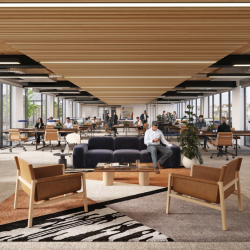 Holbein Gardens, located at 7 Holbein Place in the heart of London’s Belgravia, will lead the way for future schemes on the road to achieving net zero carbon. Independent multidisciplinary engineering consultancy HDR has been commissioned by property business Grosvenor Britain & Ireland to provide engineering services on Holbein Gardens, a new office scheme located in the heart of Belgravia. (more…)
Holbein Gardens, located at 7 Holbein Place in the heart of London’s Belgravia, will lead the way for future schemes on the road to achieving net zero carbon. Independent multidisciplinary engineering consultancy HDR has been commissioned by property business Grosvenor Britain & Ireland to provide engineering services on Holbein Gardens, a new office scheme located in the heart of Belgravia. (more…)




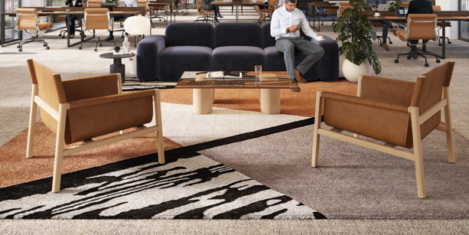

 The World Green Building Council (
The World Green Building Council (
 A new report expresses scepticism about the UK government’s current net zero strategy for the country’s buildings, with 69 percent of built environment professionals doubting its feasibility. The research, published in the City of Tomorrow report by building performance analysts
A new report expresses scepticism about the UK government’s current net zero strategy for the country’s buildings, with 69 percent of built environment professionals doubting its feasibility. The research, published in the City of Tomorrow report by building performance analysts 
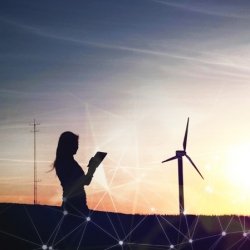 Just 41 percent of UK organisations are on track to meet the Government’s target for net zero carbon emissions by 2050, according to new research released by Dr Chris Brauer,
Just 41 percent of UK organisations are on track to meet the Government’s target for net zero carbon emissions by 2050, according to new research released by Dr Chris Brauer, 
 The
The 
 For
For 
 Ahead of COP26, green business leaders around the world have called for government and industry action on buildings and infrastructure. The World Green Building Council (WorldGBC) has published a new report, which it claims helps to identify opportunities for how a transformative, integrated approach to urban environments and buildings is essential to deliver change in line with the commitments of the Paris Agreement.
Ahead of COP26, green business leaders around the world have called for government and industry action on buildings and infrastructure. The World Green Building Council (WorldGBC) has published a new report, which it claims helps to identify opportunities for how a transformative, integrated approach to urban environments and buildings is essential to deliver change in line with the commitments of the Paris Agreement. 
 A large increase in investment in breakthrough technologies such as hydrogen-based fuels, bioenergy and carbon-capture storage solutions is needed to hit the global goal of net zero emissions by 2050. To scale these technologies and take them to market, at least a tenfold increase in investment is needed, according to the
A large increase in investment in breakthrough technologies such as hydrogen-based fuels, bioenergy and carbon-capture storage solutions is needed to hit the global goal of net zero emissions by 2050. To scale these technologies and take them to market, at least a tenfold increase in investment is needed, according to the 
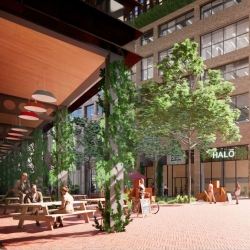
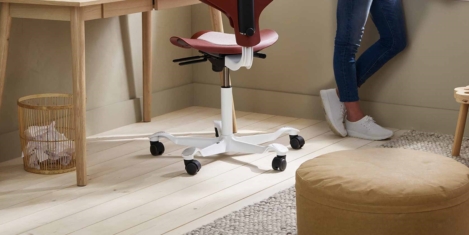
 I was reminded the other day of the instructions on a bottle of shampoo I once used which said, simply: “Wash, rinse and repeat.” Why? I’ve just washed my hair. Why do I need to repeat? It’s a bit like that old adage about how to sell more toothpaste, by widening the hole it comes out of, because we all still instinctively try to cover the whole of the brush head, however thick the line of paste.
I was reminded the other day of the instructions on a bottle of shampoo I once used which said, simply: “Wash, rinse and repeat.” Why? I’ve just washed my hair. Why do I need to repeat? It’s a bit like that old adage about how to sell more toothpaste, by widening the hole it comes out of, because we all still instinctively try to cover the whole of the brush head, however thick the line of paste. 
 In its latest white paper report,
In its latest white paper report, 








October 19, 2021
So what’s happening to all the plexiglass we thought was a solution last year?
by Mark Eltringham • Comment, Environment